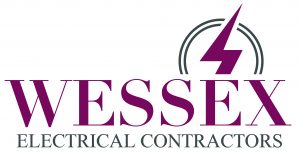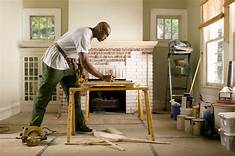Health and Safety on Site – Why is it so important?
In this weeks blog we are going to look at health and safety features and why they are so important. As a customer, H&S is probably something you wouldn’t think about, but it should be, and here is why.
Health and safety is an important consideration for any construction project. Not just to keep your workforce safe (although this is the most important reason for health and safety), but also to comply with the law. When a health and safety regulation applies to construction work, the law is usually enforced by the HSE, who are the enforcing authority on construction sites.
Health and safety processes play a vital role in minimising the number of risks on a construction site and, as such, they should be implemented from the start. When managers fail to introduce these health and safety measures, it’s very easy for risks to rise and for accidents to occur as a result.
It goes without saying that every job comes with at least some level of risk, however, some industries are more prone to dangers than others. The construction industry is certainly one of the more hazardous workplaces, but the vast majority of its associated risks can be avoided with proper health and safety measures.
n this post, we explain just how crucial it is to introduce the relevant health and safety measures on any construction site, as well as how workers, passers by and the business itself, can be affected without these processes in place.
HEALTH & SAFETY MEASURES PROTECT THE WORKFORCE
Construction sites are ever changing, they often require employees to work from heights, operate large and dangerous machinery, work with sharp and rough materials and handle very heavy loads. It is imperative all construction sites have the correct health and safety measures in place and the workforce need to be trained and fully aware of the implications of what could happen if the procedures aren’t followed.
The HSE (Health and Safety Executive) found that, staggeringly, the construction industry is responsible for a third of fatal injuries that occur whilst in the workplace. There are so many aspects of the construction trade where injuries and fatalities could occur, for example, falling from a height or being crushed by large objects or machinery.
ot only are accidents a risk, but also there is a high risk or work related illnesses, including carpal tunnel syndrome, occupational deafness, dermatitis and vibration white finger. These illnesses can develop from constantly being exposed to loud noises, vibrating tools and inhaling dust. Another risk, although rarer, is occupational cancer, caused mainly by exposure to asbestos.
All these risks sound frightnening, but with the correct procedures they are greatly reduced. Hence why health and safety is so critical.
PROTECT THE WELLBEING OF PASSERSBY
The responsibility of the risk assessor doesn’t end with their work force, they will also need to be thinking about the safety of members of the public passing by, especially as they will generally be oblivious to the dangers of a construction site.
When health and safety measures haven’t been introduced or enforced onto a site the dangers could be catastrophic and could affect the general public just as easily as the workforce.
HOW POOR HEALTH AND SAFETY CAN IMPACT CONSTRUCTION BUSINESSES
When injuries occur, that results in loss of man hours and productivity, which can affect the profitability of the company. If health and safety measures aren’t strictly followed, injuries and illnesses are more likely resulting in less time these employees will be on site.
There is also the legal aspects to think about. Failing to implement and maintain the proper measures could result in breaking the law and heavy fines from the HSE. In some severe cases the company would be banned from operating.
To summarise, it is vital all risk assessments, training, PPE and site management is conducted in a way that will keep everyone safe, and keep the site and company running smoothly.
 All Services
All Services









 5. Double Glaze
5. Double Glaze

